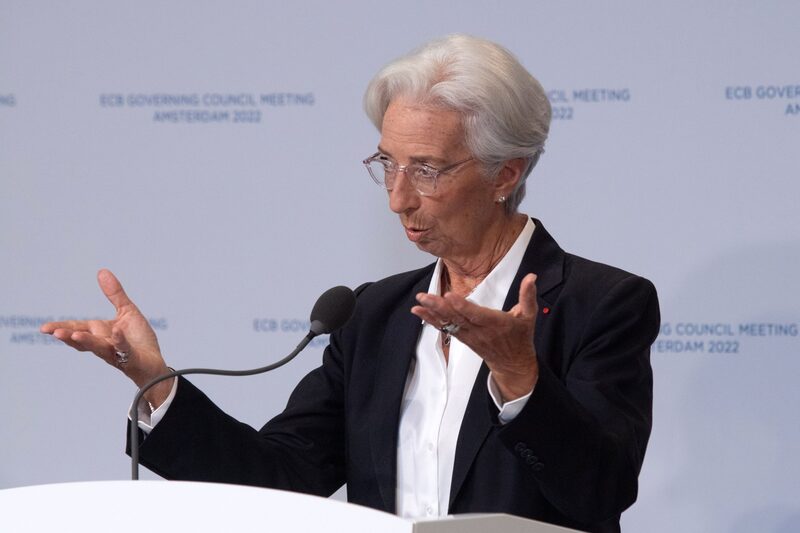A roundup of Thursday’s stock market results from across the region
🗽 On Wall Street:
The announcement by the European Central Bank (ECB) that it will raise its interest rates stoked investors’ concerns on Thursday, and who had already been delivered a deluge of news from multilateral agencies with warnings about slower economic growth and persistent inflation.
The ECB signaled a 25 basis point hike in July, and there could be a larger one in September if inflation projections exceed the 2.0% target.
Against this backdrop, the S&P 500 lost 2.38% and the Dow Jones Industrials fell 1.94%., while the Nasdaq Composite (CCMPDL) slid 2.75%.
Treasury yields remained above 3%.
Investors also have their eyes on Friday’’s U.S. inflation data, which could show that higher costs are still nowhere near dropping.
“It looks like downgrades to global growth forecasts will become a constant theme over the next few months, and that should complicate the degree of tightening we will see from central banks,” said Edward Moya, an analyst at Oanda.
🔑 The Day’s Key Movements:
Oil prices fell after new lockdowns were announced in China, raisng fears that demand in the world’s top crude importer could be hit.
Authorities in Shanghai announced they will shut seven districts this weekend for mass Covid-19 screening tests, with the city having only just emerged from a two-month shutdown in early June.
The measures are raising concerns that the city’s reopening will be delayed, as officials fear a resurgence of the infection after social and economic activities had begun to resume, Bloomberg reported.
This week, Goldman Sachs (GS) raised its quarterly forecasts for oil prices this year and through 2023, raising its WTI estimate for the next quarter to $137 per barrel.
📉 A Bad Day:
Risk aversion, between lower economic growth and higher interest rates, once again hurt Latin American stock markets, which closed the session again with losses.
The main markets in the region continued Wednesday’s trend, with none of them managing to post gains during Thursday’s session. Once again, the Colombian stock market was the worst performer, accumulating four consecutive downward sessions.
COLCAP, the main stock market index of the Colombian market, was not only hit by the international context, but also by the correction of Grupo Sura (GRUPOSUR) shares, which fell more than 6% on Thursday
With the exception of today, the company’s stock has fallen by double digits so far this week. The market is also feeling the uncertainty surrounding the second presidential round, to be held June 19, which will pit the extremes represented by Gustavo Petro and Rodolfo Hernández against each other.
Losses also occurred in Brazil’s Ibovespa (IBOV), while investors continue to closely monitor the trajectory of inflation in the world’s main economies, awaiting the U.S. data to be released tomorrow.
The Mexican stock market also closed with losses, with the performance of the materials, consumer discretionary and communication services sectors dragging down the S&P BMV/IPC (MEXBOL).
🍝 For the Dinner Table Debate:
Meta (META) is saying goodbye to its historic FB ticker, after it changed its name last October after announcing that the company’s focus would be shifting to investments in the metaverse.
But that change comes at a time when funding to the tech industry is coming in less and less frequently.
Investing in the components of the metaverse - digital worlds in which users can socialize, play and do business - or in the companies that help create the experience, are still viable early investment opportunities, Andre Lin, an analyst at Citigroup Inc (C) was quoted by Bloomberg as saying in a note.
By the analyst’s reckoning, the size of the sector would be between $8 trillion and $13 trillion by 2030.
Skepticism is high however: Roundhill Ball Metaverse ETF (METV), the largest of seven U.S. exchange-traded funds aiming to cash in on the trend, has seen its shares plunge 39% in the past year, while Meta shares have lost nearly half their value since their 2021 peak.


